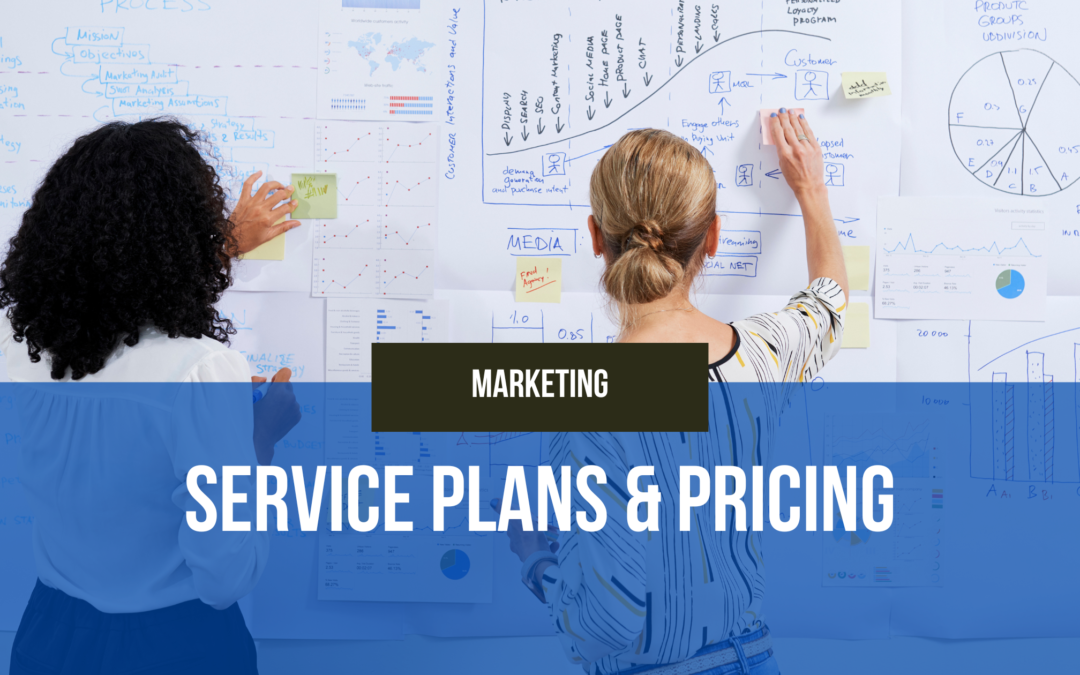Businesses often turn to marketing agencies to navigate the complexities of online visibility, customer engagement, and brand promotion. Central to this partnership is the contractual agreement between the agency and its clients, outlining the scope of services, expectations, and deliverables. Additionally, the digital marketing industry offers various marketing service plans tailored to meet diverse business needs and objectives.
Marketing Service Plans: An Overview
Contracts between marketing agencies and clients serve as foundational documents that define the terms of engagement and protect the interests of both parties. These contracts typically include:
1. Scope of Services:
This section outlines the specific services the agency will provide, such as SEO, PPC (Pay-Per-Click) advertising, social media management, content marketing, email marketing, and more. It details the strategies, tactics, and methodologies the agency will employ to achieve the client’s goals.
2. Duration and Termination:
Contracts specify the duration of the engagement, whether it’s a fixed-term agreement (e.g., six months or one year) or ongoing. They also outline conditions under which either party can terminate the contract, such as breach of terms, non-payment, or mutual agreement.
3. Fees and Payment Terms:
The contract details the agency’s fees, whether they are based on a monthly retainer, project-based pricing, or performance-based compensation. Payment terms, including invoicing schedules and methods of payment, are also clearly defined to ensure transparency and financial clarity.
4. Intellectual Property and Confidentiality:
Agreements address ownership of creative assets developed during the engagement, ensuring that the client retains rights to materials such as ad copy, graphics, and campaign data. Confidentiality clauses protect sensitive business information shared between the parties.
5. Performance Metrics and Reporting:
Contracts often include provisions for measuring campaign success and reporting requirements. Key performance indicators (KPIs), such as website traffic, conversion rates, and ROI (Return on Investment), are outlined to track the effectiveness of marketing efforts.
Types of Service Plan Options
Most agencies offer a range of service plan options to accommodate the unique needs and budgets of their clients. These plans can be categorized into several common types:
1. Monthly Retainer Agreements:
– Benefits: Clients pay a fixed monthly fee for a predetermined set of services, such as SEO, social media management, and content creation. This predictable pricing structure provides budgetary stability and ongoing support from the agency.
– Ideal for: Businesses seeking consistent, long-term marketing support without the hassle of renegotiating terms frequently.
– Recommended Service: SEO Accelerator Service Plan
2. Project-Based Pricing:
– Benefits: Agencies charge a one-time fee for specific projects or campaigns, such as website redesigns, ad campaigns, or product launches. This pricing model allows clients to budget for individual initiatives without committing to ongoing services.
– Ideal for: Companies looking to address specific marketing needs or test the effectiveness of agency services before entering into a long-term contract.
3. Performance-Based Compensation:
– Benefits: Agencies receive compensation based on predefined performance metrics, such as lead generation, sales, or customer acquisition. This model aligns agency incentives with client business objectives, fostering a results-driven partnership.
– Ideal for: Businesses focused on measurable outcomes and seeking to minimize upfront costs while incentivizing the agency to deliver tangible results.
4. Hourly Consultation or Ad Hoc Services:
– Benefits: Clients engage with agencies on an as-needed basis, paying hourly rates for consulting, training, or specialized services such as SEO audits or campaign optimization. This flexibility allows businesses to access expertise without committing to ongoing contracts.
– Ideal for: Startups, small businesses, or organizations with sporadic marketing needs who require tailored advice or assistance on specific projects.
5. Full-Service Agreements:
– Benefits: Comprehensive packages that encompass a wide range of digital marketing services, including strategy development, implementation, and ongoing management. Agencies act as strategic partners, overseeing all aspects of the client’s digital presence.
– Ideal for: Larger enterprises or businesses looking for a holistic approach to marketing that integrates multiple channels and disciplines under one cohesive strategy.
Choosing the Right Service Plan
Selecting the appropriate service plan depends on several factors, including the business’s goals, budget, timeline, and internal resources. When evaluating marketing agencies and their service offerings, consider the following considerations:
Business Objectives
Define clear objectives for your marketing efforts, whether it’s increasing brand awareness, driving website traffic, generating leads, or boosting sales.
Budget Considerations
Determine your marketing budget and assess whether the proposed service plan aligns with your financial resources and expected return on investment.
Long-Term vs. Short-Term Needs
Evaluate whether your marketing needs are ongoing and require continuous support (e.g., monthly retainer) or if you have specific projects or campaigns that necessitate a project-based approach.
Agency Expertise and Track Record
Research the agency’s experience, industry expertise, and track record of success with similar clients or campaigns.
Contractual Flexibility
Ensure the contract terms and conditions are clear, fair, and flexible enough to accommodate unforeseen changes or adjustments in strategy.
Marketing service plans in the digital marketing industry are designed to facilitate productive partnerships between agencies and their clients. By understanding the elements of a typical contract and exploring various service plan models, businesses can make informed decisions that align with their marketing objectives, budgetary constraints, and operational requirements. Whether opting for a monthly retainer, project-based pricing, or performance-driven compensation, the key to success lies in selecting a service plan that fosters collaboration, drives results, and supports long-term growth in the competitive digital landscape.
